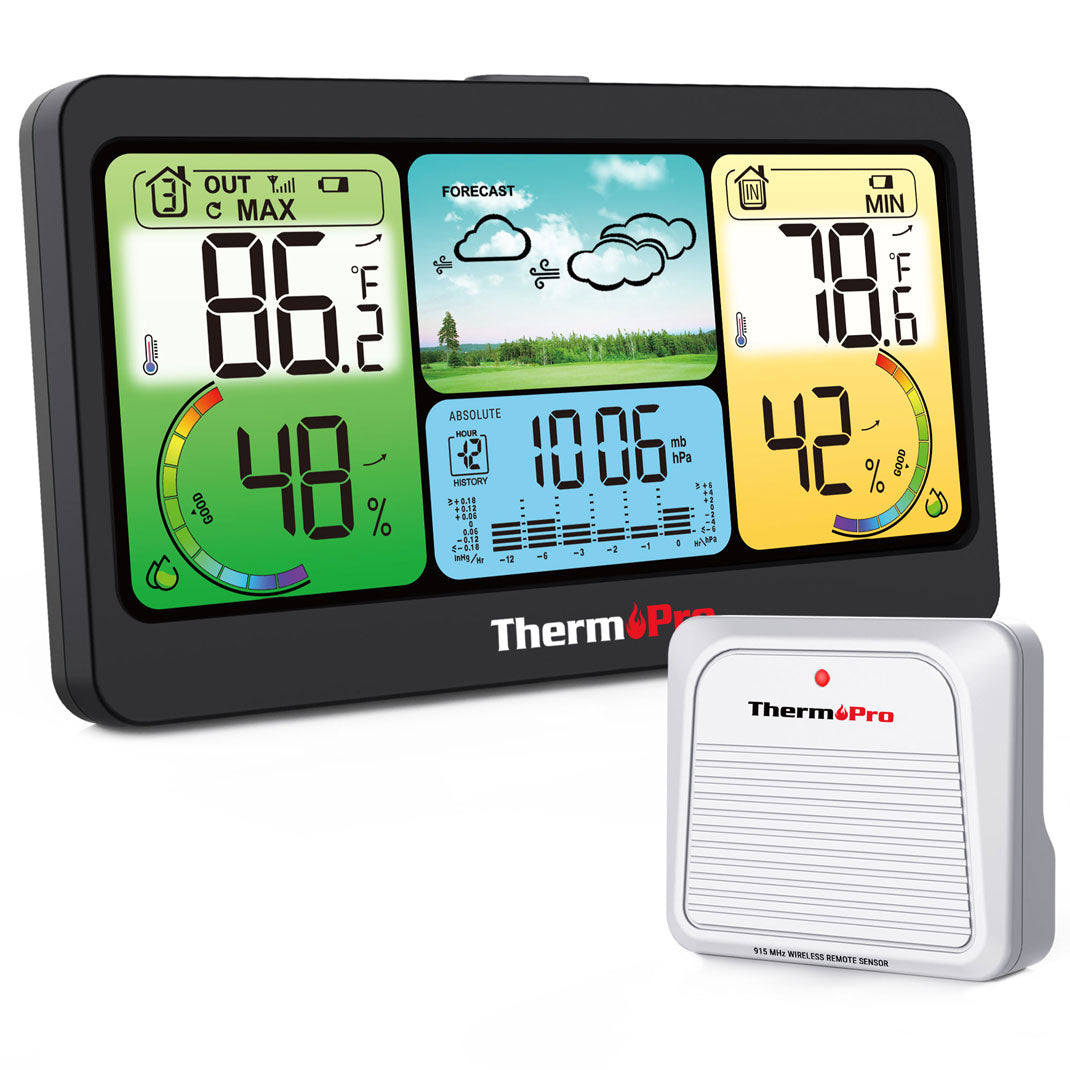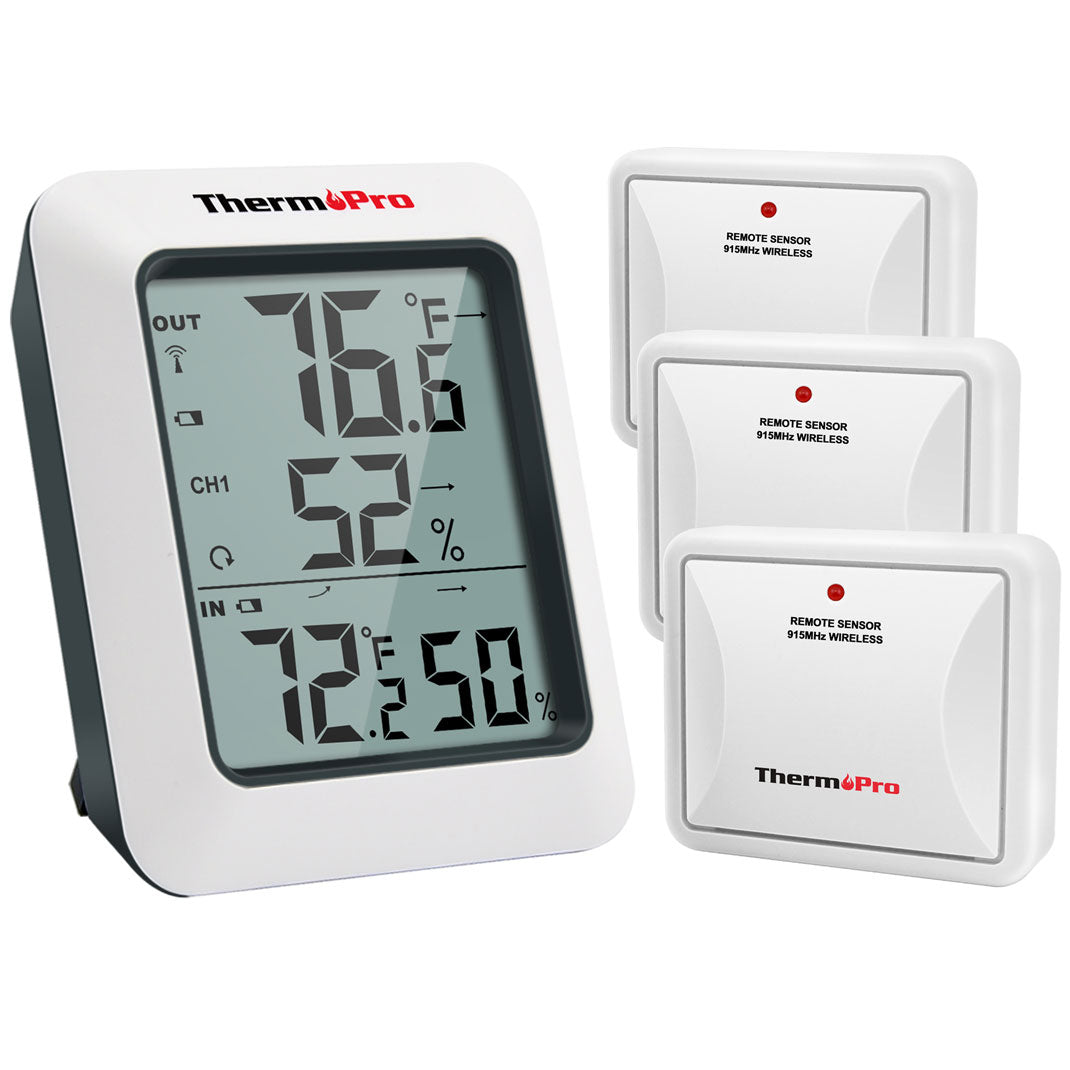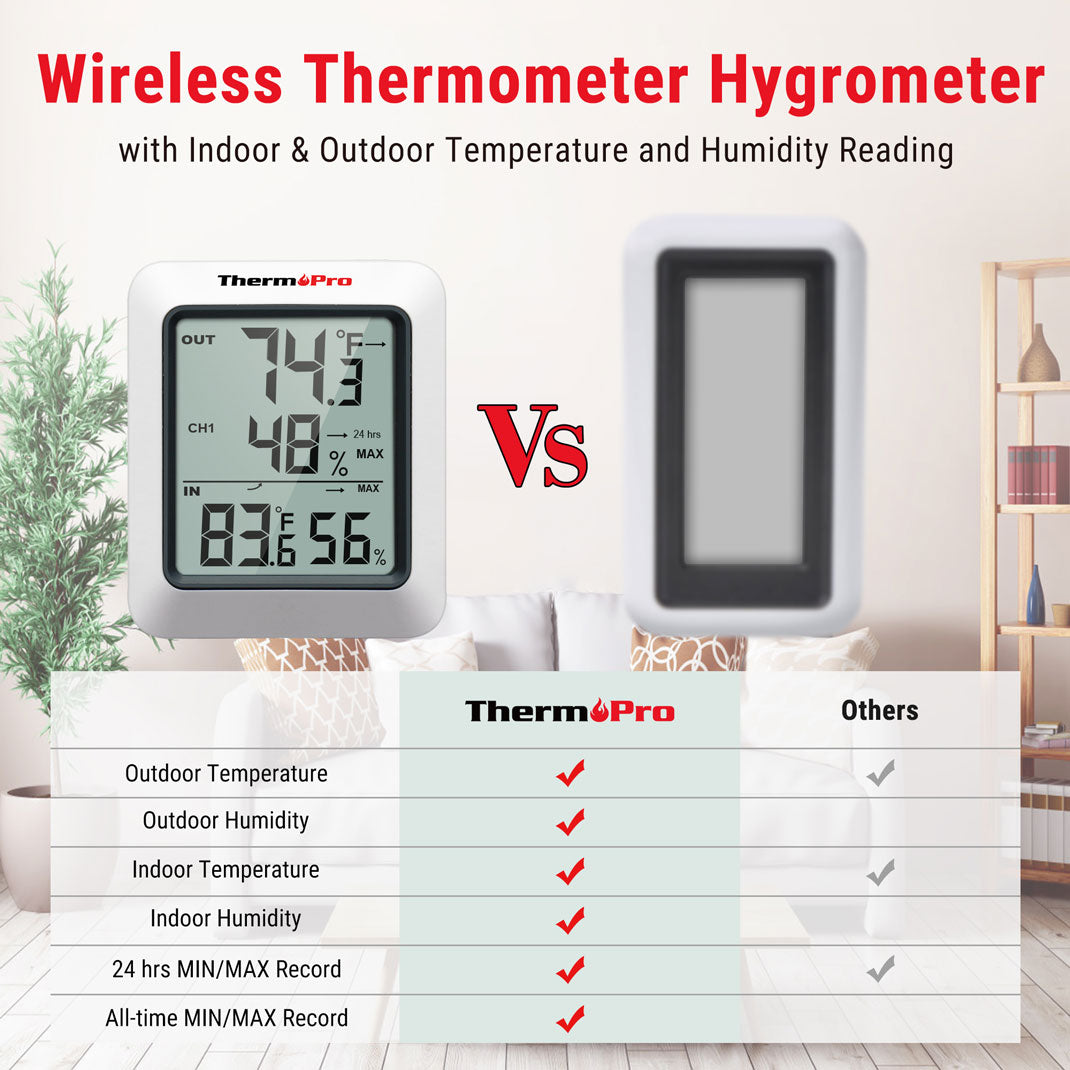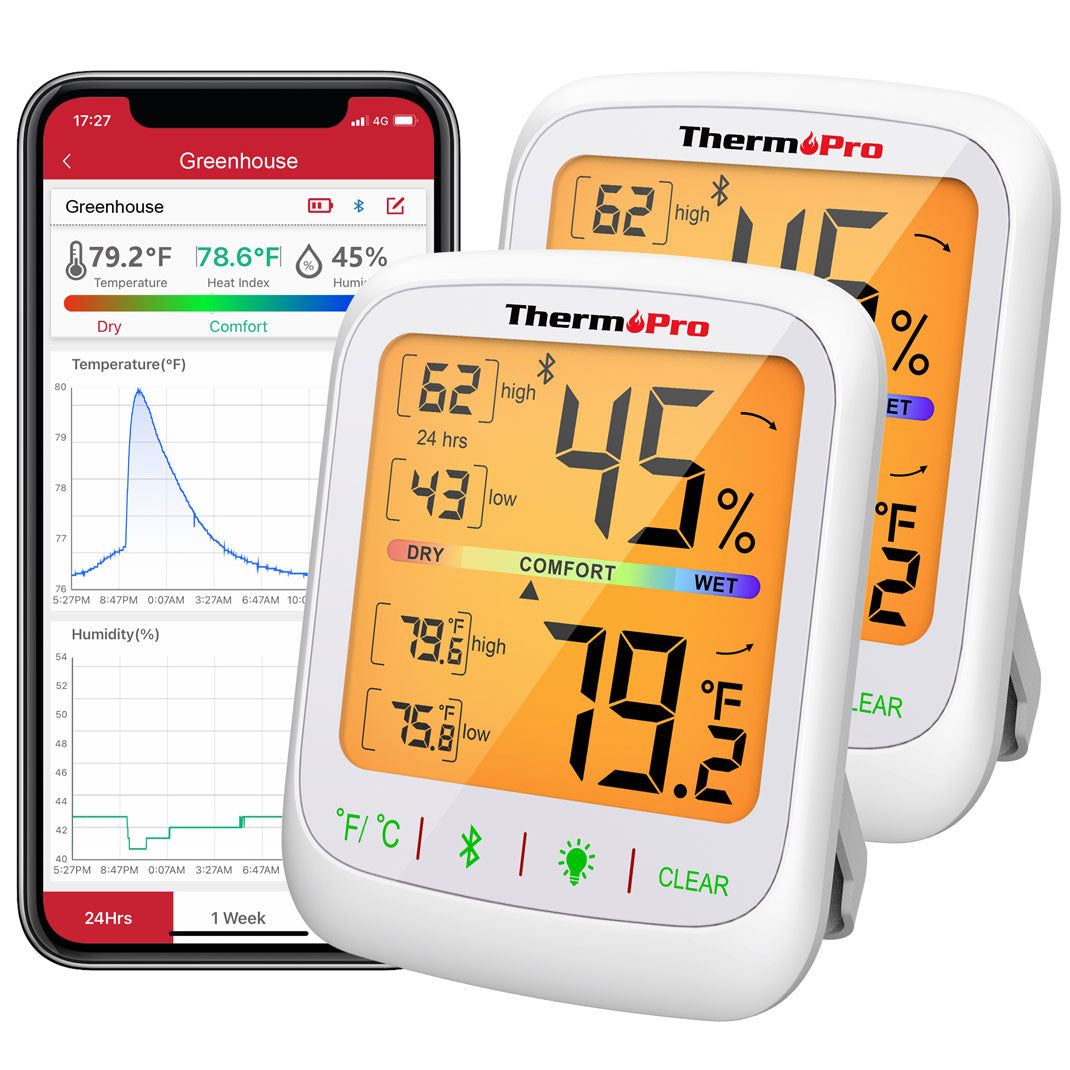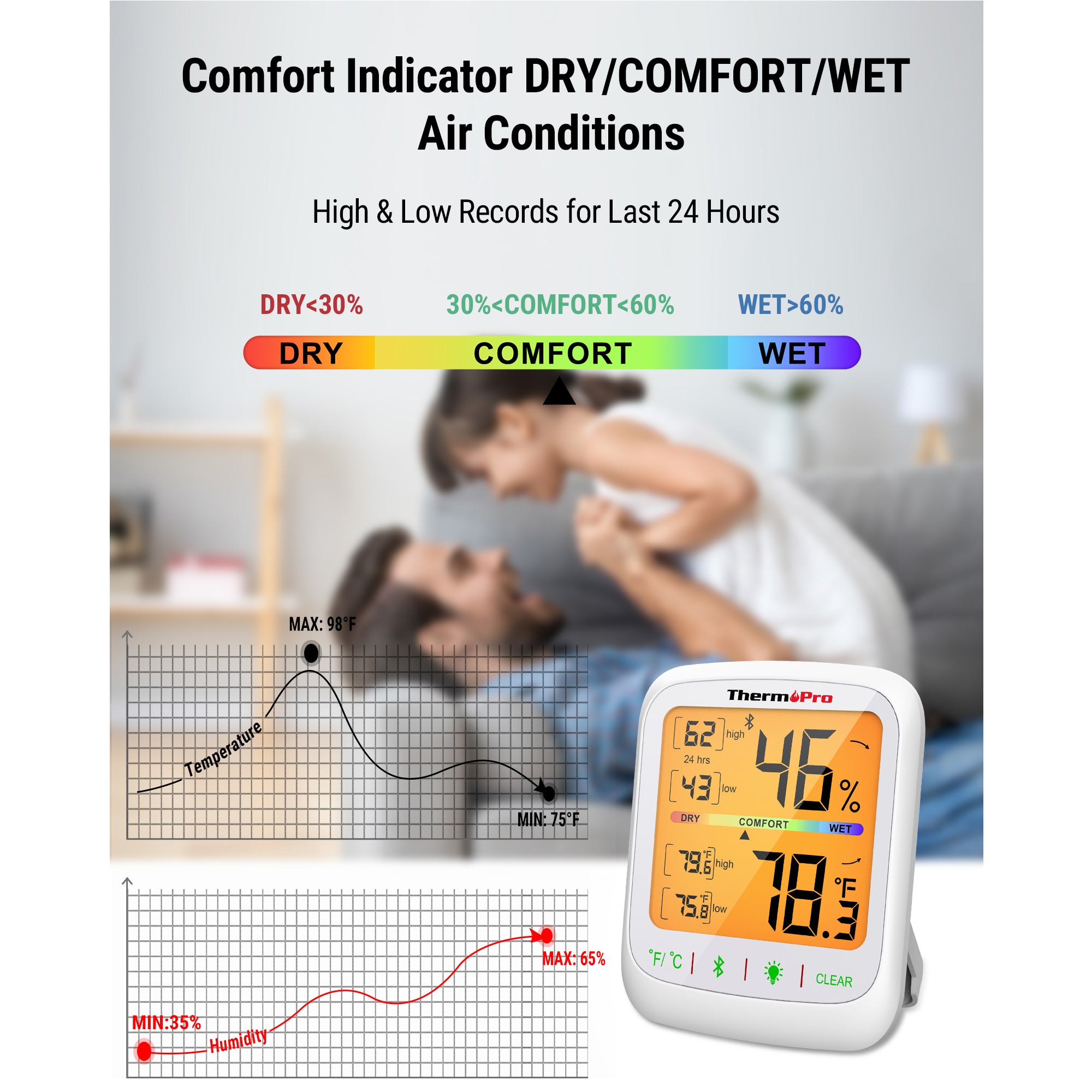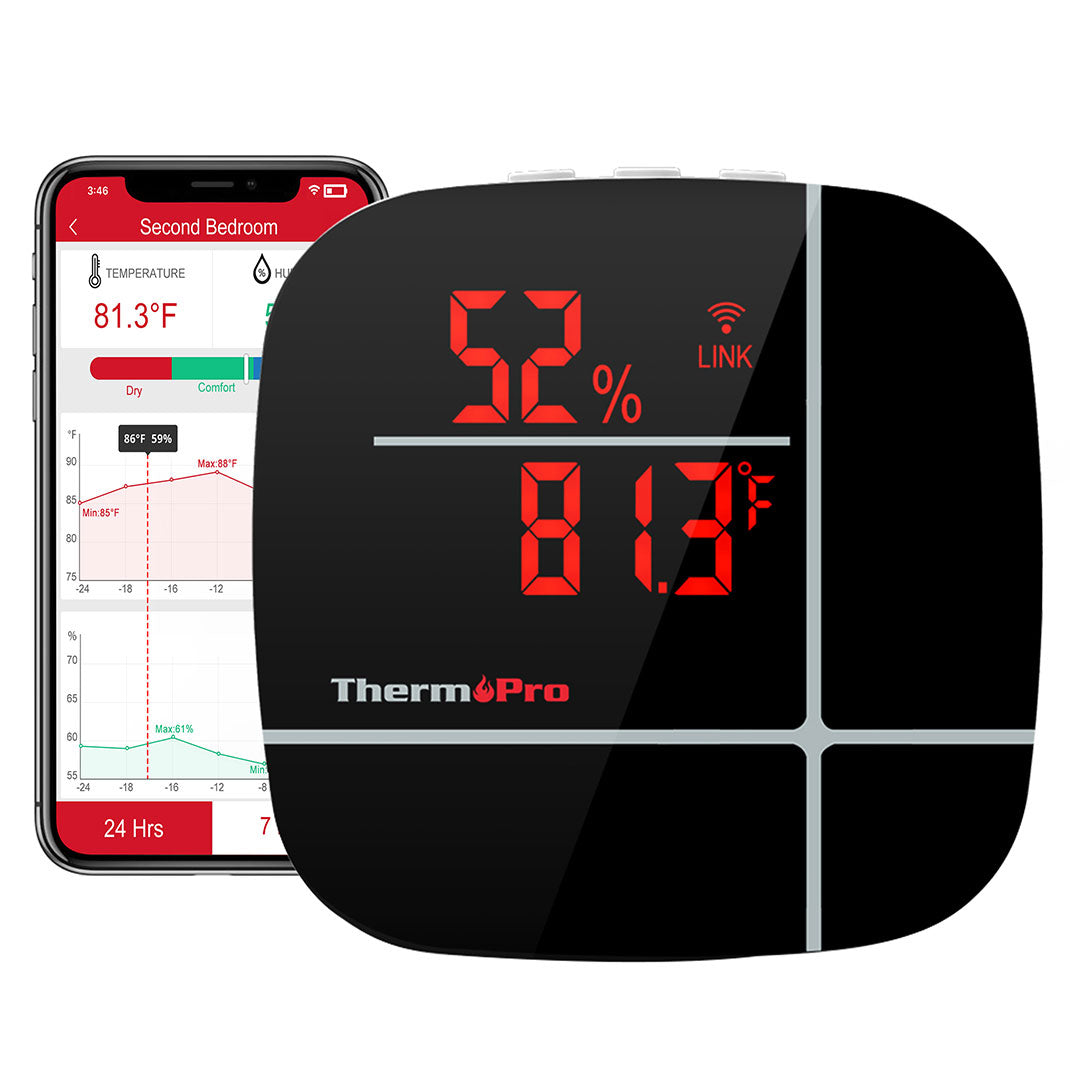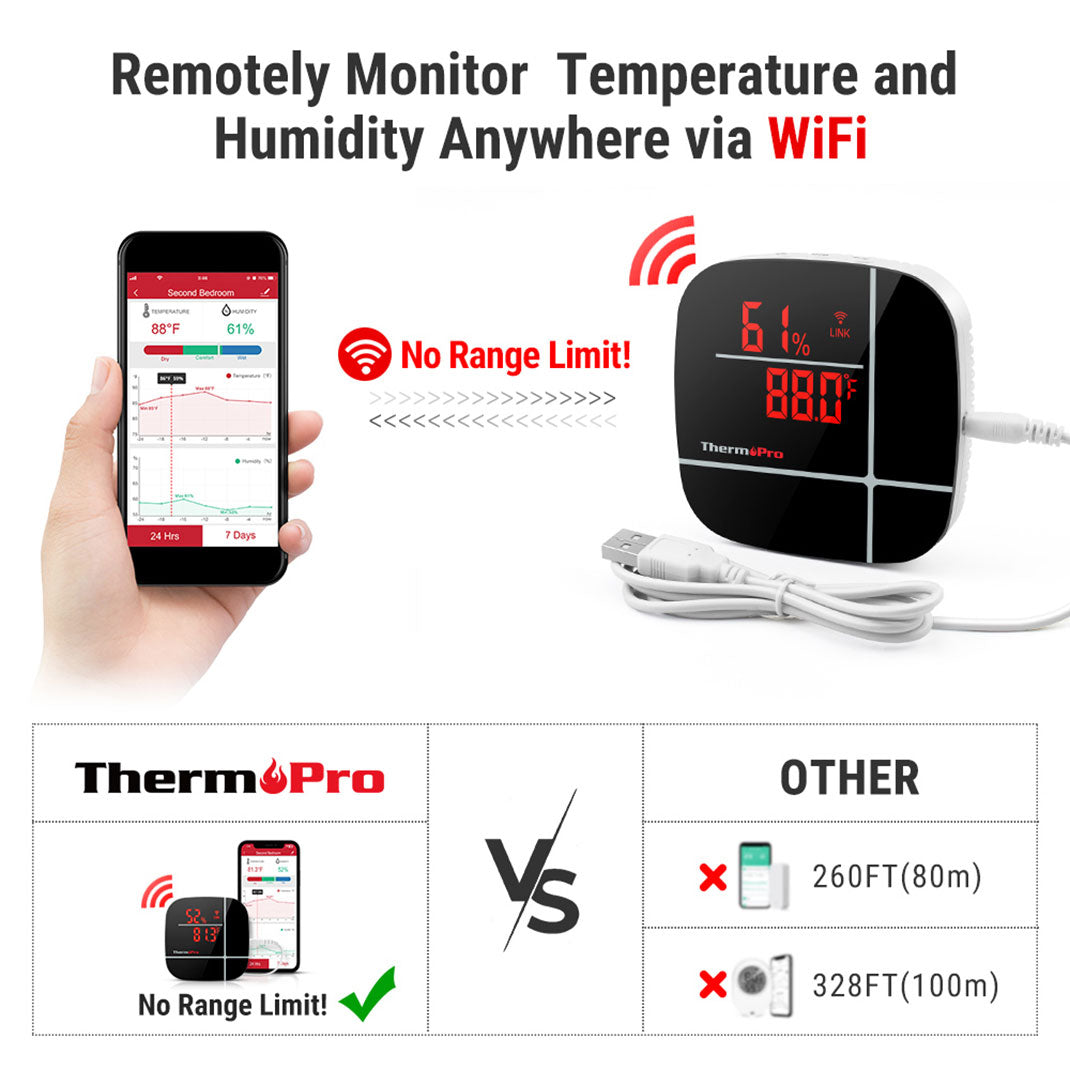How Room Temperature Affects Your Mood and How ThermoPro Hygrometers Can Help






 288 Comments
288 Comments
1. Introduction: Why Room Temperature Influences Emotions
People often underestimate how much indoor climate affects mood and mental clarity. Subtle shifts in room temperature can influence everything from stress levels to decision-making quality. Keeping your environment in a comfortable zone can help maintain emotional and cognitive well-being.

2. Scientific Evidence: Temperature and Mood
Temperature and Emotional Expression
A large-scale analysis of over 3.5 billion tweets and Facebook posts found positive emotions peak around 20 °C (68 °F), while both hot and cold extremes suppress emotional positivity and increase negative sentiment.
Mental Health Hotline Data
In Germany, helpline call volume increased on days when average temperatures exceeded 25 °C (77 °F) or dropped below 0 °C (32 °F), suggesting weather extremes raise stress, anxiety, and emotional strain. Read more on arxiv.org.
Ecological Momentary Assessment Findings
A Swiss cohort study using frequent mood ratings found that higher daily maximum temperatures were significantly associated with more frequent reports of “bad mood,” even after adjusting for confounders such as sleep quality and personality traits. See the study here.
PLOS ONE Data on Self-Reported Mental Health
Among over three million Americans (1993–2010), days hotter than an average 60–70 °F were linked to more reports of poor mental health, while cooler days seemed immediately beneficial, though hot days produced stronger cumulative effects. Source: PLOS ONE.
Temperature and Cognitive Performance
Research also shows gender differences in cognitive performance related to temperature: women perform better on math and verbal tasks at warmer temperatures (~24–29 °C), while men perform better in cooler (~18–22 °C) environments. See the detailed findings on European Scientist.
3. What’s the Ideal Indoor Temperature for Well-Being
Based on systematic research and health guidelines:
- Peak emotional comfort centers around 20 °C (68 °F) (source).
- The World Health Organization (WHO) recommends indoor temperatures no lower than 18 °C (64 °F), especially for vulnerable groups, and suggests temperatures above 25 °C may pose additional stress (Wikipedia - Room Temperature).
4. Risks of Too Hot or Too Cold Environments
When it’s Too Hot:
- Elevated temperatures impair cognitive focus and self-regulation, often increasing irritability and emotional impulsivity (Self Magazine).
- A 1 °F rise in ambient temperature corresponds to a ~1 % increase in suicide risk in some studies (Time Magazine).
When it’s Too Cold:
- Cold indoor environments are linked with low mood, fatigue, and decreased mental agility—even increased help-line calls as observed in Germany (arxiv.org).
5. How Humidity Impacts Mood
Temperature and humidity combine to shape how your environment feels. Key points:
- High humidity (> 60 %) intensifies discomfort in heat and affects sleep quality and concentration.
- Low humidity (< 30 %) can dry mucous membranes and increase irritability.
Although direct studies of humidity’s mental health effects are fewer, comfort zone guidelines recommend maintaining 40–60 % indoor humidity for both emotional and physical comfort.
6. ThermoPro Hygrometers: Tools for Comfort and Mental Balance
To maintain emotional well-being, knowing the exact indoor temperature and humidity is essential. ThermoPro offers reliable, user-friendly hygrometers designed to help:
TP280B Wireless Weather Station
- 1,000-ft Wireless Range for seamless indoor/outdoor monitoring.
- Swiss Sensor Accuracy with ±0.5°F precision, even in extreme cold.
- 24-Hour Weather Forecasts with pressure modes and 12-hour history.
- Trend Arrows & Alerts for high/low temps and comfort levels.

TP60B With 3 Sensors Wireless Thermometer Hygrometer
- Multi-Room Use in baby rooms, basements, greenhouses, and more.
- 30-Second Refresh Rate for real-time temperature and humidity updates.
- 500-ft Wireless Range for reliable remote monitoring.
- Flexible Placement with built-in stand and wall mount options.

By monitoring both temperature and humidity, these tools help you quickly detect and correct uncomfortable conditions—whether you're too warm, too cool, too dry, or too humid.
7. Conclusion
Room temperature matters—and affects mood, cognition, and overall mental health. Scientific evidence supports that moderate indoor climate significantly boosts emotional regulation, reduces stress, and supports clearer thinking.
Using a reliable hygrometer, you can actively manage your environment—ensuring a mood-supportive space. With accurate, real-time data, simple adjustments to your heating, cooling, or humidity systems can transform mental well-being.
Comments
You May Also Like

The Ideal Humidity in Your Basement

Ideal Temperature and Humidity for a Greenhouse

How to Reduce Summer Humidity in Your Home







